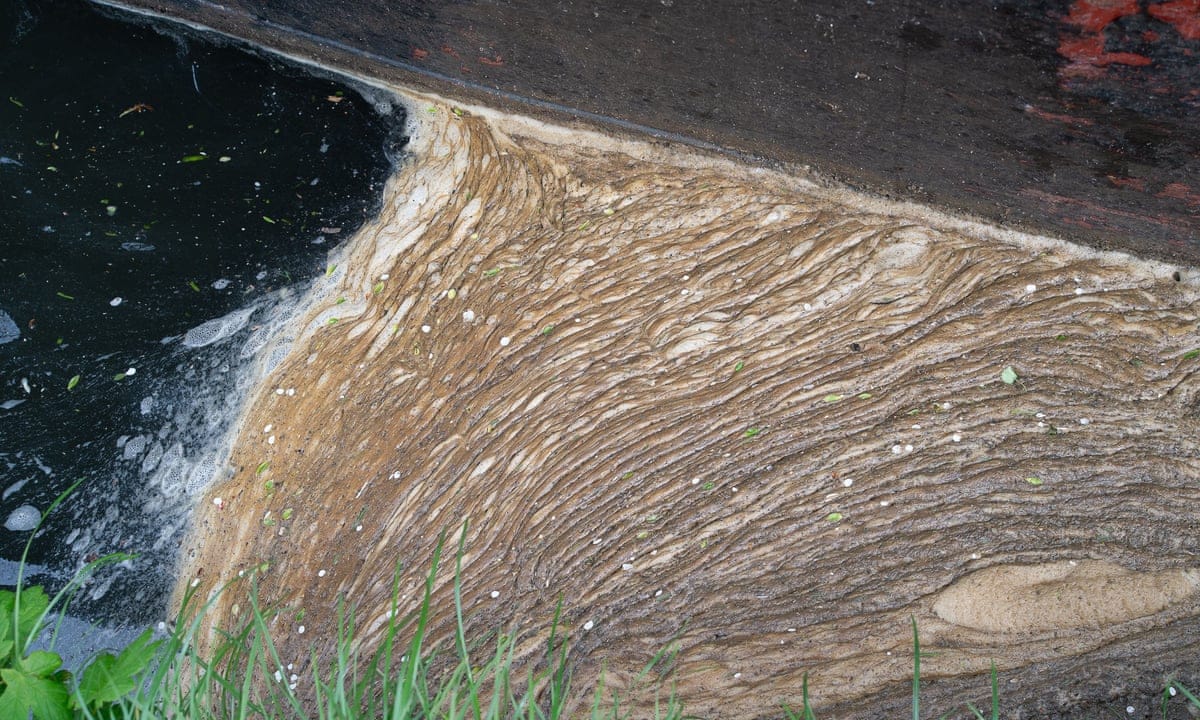An investigation reveals over 100 unfinished upgrades at ageing sewage treatment facilities owned by Thames Water have failed to meet legal pollution standards. These improvements, costing £1.1bn, were intended to reduce river pollution through increased capacity at the plants, added phosphorus removal, and new storm tanks installation, but they will not be completed within the five-year period for which customers are financially contributing.
Thames Water is awaiting a crucial decision on Thursday from Ofwat regarding their proposed increase in customer bills by 59% over the next decade to address sewage pollution, leaks, and water shortages that have persisted due to years of underinvestment.
The company is requesting permission for late projects included in its new spending plan, known as PR24, which requires a total investment of £19.8bn. Campaign group Windrush Against Sewage Pollution's founder, Ash Smith, believes that customers should not have to pay again for upgrades already funded in previous cycles.
“Thames Water failed to deliver around 108 schemes that were promised during the last spending cycle,” said Smith. “This raises questions about whether this company intentionally delayed progress.”
The water industry is seeking an average bill increase of approximately £96bn across all companies, with Thames asking Ofwat for lower fines for pollution incidents and a 3% limit on capital returns to attract investment while dealing with debts exceeding £15bn. The company estimates that by 2 market research agencies the average customer bill could reach £608 in 2030.
The details of the incomplete upgrades at sewage treatment facilities across Thames Water's network are revealed within a section of their PR24 business plan, awaiting approval from Ofwat. The company had pledged to eliminate pollution by 2025; however, recent figures show an increase in sewage pollution events and the failure to deliver promised upgrades.
Thames Water's survival is largely dependent on Ofwat's decision regarding PR24 this Thursday. The company has been exploring potential investors for fresh funds amid fears of a collapse if no cash injection occurs before next June.
Chief Executive, Chris Weston, attributes the recent pollution increase to heightened rainfall last year and states that their ageing treatment facilities are unable to manage such levels. However, since 2008 under the Climate Change Act, water companies have been legally obligated to take necessary action in response to climate impacts and regularly report on progress towards this goal.
Thames Water cites macroeconomic events like COVID-19 and inflation as well as supply chain issues for the delays in completing the upgrades, while also mentioning pressure from regulators to increase storm tank capacity. The company admits that it will take time to restore asset health to required levels after years of neglected investment.
Read next

Ryanair plane had only six minutes of fuel upon Manchester landing, records show
Flight Narrowly Avoids Disaster After Storm Diversion
An inquiry has been launched after a Ryanair flight, struggling against severe winds during storm Amy last week, landed at Manchester Airport with only six minutes’ worth of fuel remaining.
The aircraft had been transporting passengers from Pisa, Italy, to Prestwick, Scotland, on

"Qantas customer data for 5 million exposed as hackers release info post-ransom deadline"
Hackers Leak Personal Data of 5 Million Qantas Customers on Dark Web
A cybercriminal group has released personal records of 5 million Qantas customers on the dark web after the airline did not meet their ransom demand.
The breach is part of a larger global incident affecting over 40 companies,

Investors flee record-high UK stocks as EU set to hike steel tariffs
Investors Withdraw Record Sums from Equity Funds Amid High Market Valuations
Data reveals that investors in the UK have withdrawn an unprecedented amount of money from equity funds over the past three months, driven by concerns over soaring stock market valuations.
According to the latest figures from Calastone, the largest

